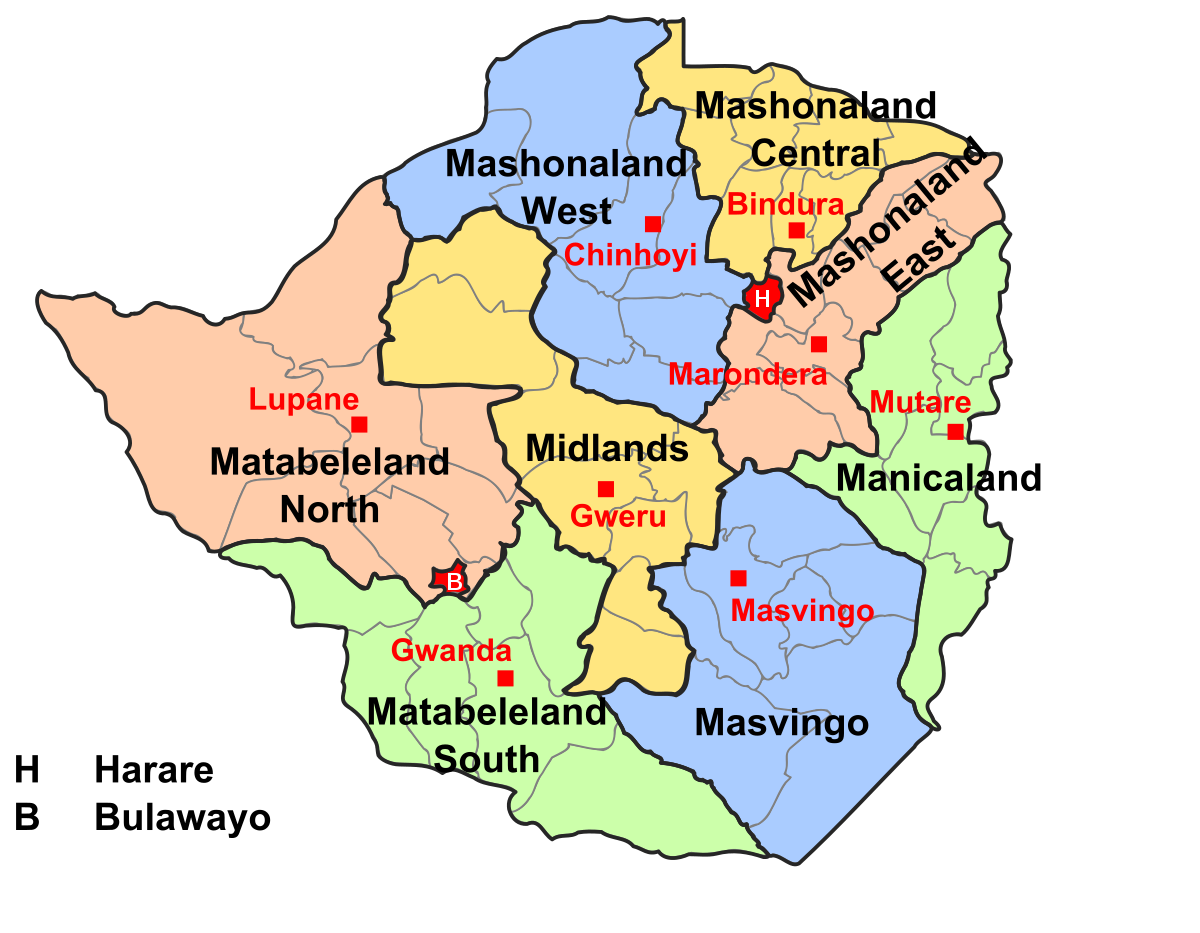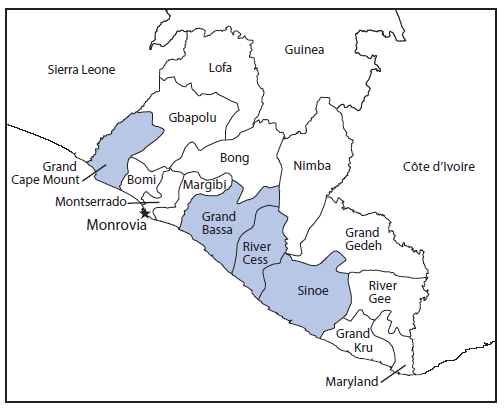The following reflection is important. It shows that there are good-hearted and highly educated Zimbabweans who convincingly argue that the recent ritual murders necessitate an adjustment of the country’s laws. This reaction is partly motivated by the ritualistic killing of Tapiwa Makore (7) of Murehwa and the two Benza cousins Delan (7) and Melissa (7) of central Mutasa (see my previous postings).
The author of the article presented below also focuses on a person who is often behind these ritual killings: the songoma or faith healer. Too often, the songoma is left out of the investigations following the ritual murder and not implicated in the trial of the actual killer(s) whereas in fact the songoma can be considered an important driving force behind the heinous crime which is committed during the murderous traditional ritual.
Let’s monitor how swiftly Zimbabwe’s rulers including lawmakers and the judiciary act!
I will keep you informed (webmaster FVDK).
Time to look beyond ritual murderers

Published: April 30, 2021
By: Zimbabwe Independent – Sharon Hofisi
I ONCE represented people charged with murder in court. That was where I had my first real encounter with the subject of intentional or negligent killing. It was not a positive experience. Nevertheless, I got some acquittals. I remember the cases well. They took my inexperienced product of law school and taught me to understand the criminal laws and procedures of this country with deep preparation. So I took the cases on a pro deo basis. Put simply, this means acting for God. But with the increasing ritual killings, a lack of deliberate offences on ritual killings and honour crimes is a serious lacuna in our criminal justice system.
The purpose of criminal laws should mirror the nature of the society itself. Societies that are governed through laws are called to heal the divisions caused by violators of the law. When a society seems to be in danger of endless commissions of heinous crimes, focusing too much on investigation machinery and work and neglecting criminal law reform may pose further deep seated challenges. What often happens, however, is that even if the laws are reformed, we need to guard against reactionary responses to endemic problems. If the purpose of criminal law reform is to curb impunity in all forms of killings and deal decisively with utter disregard of the sanctity of human life, then a law can be a healthy first step in protecting the rights of vulnerable sections of society such as women, children, persons with albinism and other disabilities.
Even a criminal law reform committee will be horrified to learn that ritual motivators are not part of the suspects to be arrested. We are encouraged by the fact that our criminal laws allow for the arrest and prosecution of accomplices. But psyched people are usually afraid of the unknown. The psyched ritual killers strike fast, simultaneously attacking unsuspecting children or persons with disabilities.
The details that usually emerge after the gruesome killings are too numerous and disturbing. We definitely cannot bring our conscience to understand the difference between the actual killer and the one who motivates the killer to do so. The killer believes it is going to be an “all-for-purple-life” killing. Later, he is taught that the act was natural after all when he gets caught. It was his darkest ritual psyched moments that brought the longest, bloodiest, most heinous crimes to carry out. It costs innocent lives and no financial rewards as promised. And most families of the killers are left destitute. The breadwinner is locked up and the family is drawn into incessant wars of appeasing vengeful spirits as contemplated in our traditional faiths.
The hideous scars born by the families of the victims will last a very long time. But these ritual killing motivators are cunning and they will continue to hoodwink many people into psyched killings. They may never get their comeuppance. Certainly the time has come to act decisively on criminal law reform on ritual murder and honour crimes in Zimbabwe. Legislation, the passing of Acts in Parliament, is the most important of Parliament’s many tasks. I believe many stakeholders can agree on the explanatory memorandum for a Ritual Murders and Honour Crimes Bill. The long title of that Bill can deal with issues relating to the ritual murders and honour crimes and other purposes connected with these issues. The enacting formula can be decided by the nature of offences being committed usually against vulnerable sections of societies such as children, elderly women, persons with disabilities and so forth.
Perhaps the major point to grasp about ritual killings is that a psychic person, or even a bogus part of a psychic person, promises someone a lavish lifestyle once a heinous crime is committed. It could be the killing of a sibling, distant relative or some stranger. Exactly what is meant by “ritual” is not necessarily obvious since the killing of the person is controlled by the killer who uses the elaborate descriptions from the psychic leader. A small change in the psychic instructions can make a huge difference – so we hear from failed ritual killing missions. Each small step is catalysed and crystallised by the need for hot porridge riches. Many of these random killings may do the killer no harm if he observes the instructions (muko). Sometimes the killer will destroy the fighting powers of the deceased through some further rituals, kutsipika ngozi. This means that in any event, the killer is fully aware that they intentionally committed murder.
Reading stories about gruesome murders of young children by people who were promised material or financial gains tests our resolve as a polity of relationships between crime and fighting crime. We are given a set of criminal instances and must choose another set of responses that is related in the same way.
Many reforms of criminal laws are possible. Reading the modus operandi of criminals test our ability to understand and interpret the criminal laws we can promulgate in response. This is probably the most important ability we need as a society at the moment.
In analysis of the killings of children in our media reportages, we are presented with situations detailing criminal events and then a result of something that is steered by someone who is believed to possess some supernatural or magical powers to make people rich, overnight.
Our task is to decide in the legal and non-legal fraternity whether certain statements or motivations to commit crimes provide adequate explanations of how we can curb violent crimes. Each new crime provides us with a new format for criminal law reform.
For Zimbabwe and the disturbing killings, it’s now much more than just a usual ritual murder, headlines and efficient state response. We need to move beyond crime scene visits and the arrest of suspects. Ritual murders are now shaping an entire generation of criminal inquiry. It’s now the time to transform the changing and disturbing criminal scenes of the last ten or so years into a clear and widely-reformed criminal justice system in Zimbabwe. The motivating variable in this urgent need for criminal justice reform is steeped in legal realism. Law may be stable, but it cannot stand still if I may employ Roscoe Pound’s philosophy.
Are these ritual crimes something reflective of honour crimes, where relatives and close acquaintances are the pawns in the much bigger chess game? Barely when the Makore killing had left our minds we hear of the gruesome murder of two children. Zimbabwe has witnessed the targeted ritual killings which encourage criminal responsibility to be broadened in scope. Each killing achieves a disturbing measure of brutality and mental intention to kill. The recurring pattern of failed rituals that are broken by arrest of the suspects and eventual incarceration of such suspects all have at most one thing in common: each killing in its own way forces the killer and the ritual motivator to forge an unholy alliance; share the same mental and actual intention to kill, only from the opposite perspective.
The actual killer is psyched to kill. The ritual motivator psyches the ultimate killer. Each fails to see that confronted with effective investigation machinery the prospective ritual will inevitably not succeed. Equally gruesomely, each fails to see that the criminal path between hatching a heinous act of killing and frenzied killing act is not only false but leads towards a catastrophic breakdown of the family fabric.
The falsity of the ritual shows that one or two or more or many suspects are arrested. The ritual motivator, the instigator of the death of the innocent young souls remains. He or she continues hoodwinking many people into killing many young children.
All in the name of enhancing business or getting filthy money! Here too, there is more criminality in the sangoma or faith healer than criminal intention in the actual killer. The sangoma or ritual motivator does not simply aim to alleviate poverty through the loss of innocent blood of a family member, gruesome murder, psyched actions, and so forth. Efforts to control and encourage killing, no matter how important or necessary, are only one aspect of “intentional killing”. The sanctity of human life, and human life itself, as we know from our Constitution and even various types of our faiths, depend on more than the alleviation of poverty and the satisfaction of material needs. The reason for which we were created is to enjoy life and the maker of it forever.
Hofisi is a transformative transitional justice practitioner, normative influencer and disruptive thinker.
Source: Time to look beyond ritual murderers



